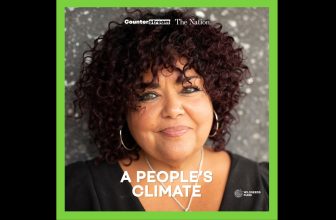

In the heart of rural Zimbabwe, a quiet yet transformative revolution is underway—one powered not by fossil fuels or foreign intervention, but by an Africa-born innovation designed with women at its core. The Hamba, a durable, solar-powered electric tricycle, is reshaping the lives of rural women across the country, enabling them to access economic opportunities, increase household incomes, and claim long-overdue recognition in their communities.
At the center of this movement is Mobility for Africa (MFA), a local startup that manufactures and distributes the Hamba with a strong focus on female empowerment. Initially rolled out through a pilot leasing program, the company offered women the chance to lease a Hamba for just $15 a month. The program quickly proved a success, and today, the tricycles are available through lease-to-own and flexible rental arrangements. According to MFA, 70% of Hambas are allocated for women, with over 300 currently owned or operated by female users.
What makes the Hamba so impactful isn’t just its affordability or green credentials—it’s the very practical utility it offers for everyday life. In communities where infrastructure is poor and distances between homes, markets, schools, and clinics are vast, the Hamba dramatically reduces the time and physical strain associated with transport. Tasks that used to take hours on foot or by ox-drawn carts—such as fetching water, collecting firewood, or transporting goods—can now be completed efficiently and with dignity.
Hilda Takadini, a 34-year-old tomato farmer and mother of six, shared how the vehicle transformed her routine. “In the past transporting our produce to the market was a nightmare—we would wake up at 3 a.m. and travel a very long distance using an ox-drawn cart,” she told Africa News. “But now it is much easier—we can reach the market on time.” For women like Takadini, the Hamba is not just a convenience; it’s a lifeline that enables better time management, fresher produce at market, and, ultimately, higher profits.
Moreover, the impact of the Hamba extends beyond economics. In a survey conducted among pilot program participants, 92% of female users reported feeling significantly safer traveling by tricycle than by foot. This sense of safety has emboldened some women to expand their roles in the community, taking on work as drivers or couriers for neighbors and local businesses—sparking a wave of entrepreneurial activity.
Anna Bhobho, a 31-year-old housewife who previously had little to no role in the local economy, is now a central figure in her household’s financial life. She uses the Hamba to transport goods for others, including Takadini, whose tomatoes she delivers to market. “Even my husband and in-laws have more respect for me now. No one used to listen to me, but now I have a seat when important decisions are being made,” she said in an interview with Africa News.
The tricycles themselves are engineered with simplicity and sustainability in mind. Each Hamba has only one moving part in its motor, reducing the likelihood of mechanical failure and making maintenance straightforward. When the battery runs low, users can swap it out for just $5 at solar-powered charging stations developed by MFA’s partner, InfraCo Africa. These stations not only power the trikes but also offer a decentralized solution to energy access in off-grid communities.
Capable of carrying up to 1,000 pounds of cargo and reaching speeds of up to 37 mph, the Hamba is well-suited to the rugged, often unpaved roads common in Zimbabwe’s countryside. But more than a mode of transport, it is a vehicle for change—symbolizing agency, opportunity, and respect for the women who drive it.
In many ways, the Hamba represents the convergence of grassroots innovation and gender empowerment. It’s a model that resonates far beyond Zimbabwe and offers a compelling blueprint for how locally developed, context-specific technology can help unlock the potential of women in underserved communities. As MFA and its partners continue to scale the project, the ripple effects are already being felt: more women in school, more goods at market, and more voices at the decision-making table.
What are your thoughts? Please comment below and share this news!
True Activist / Report a typo







